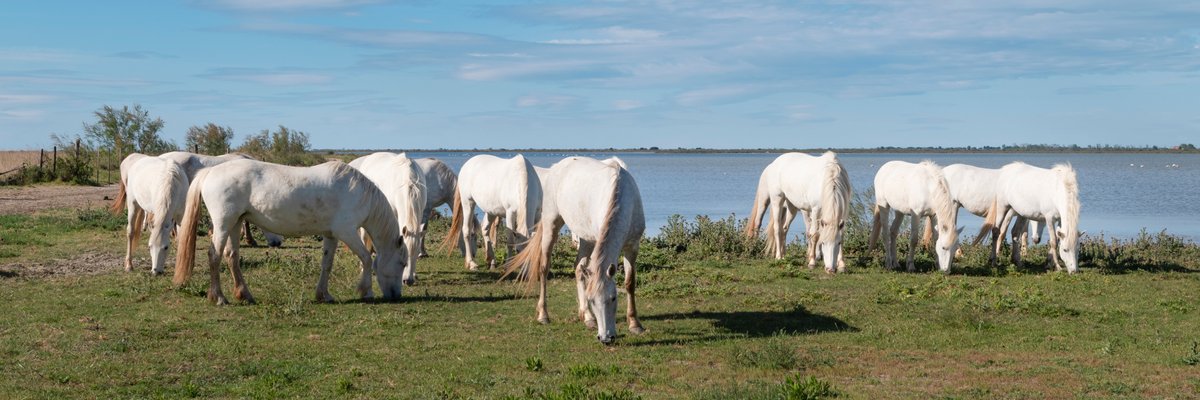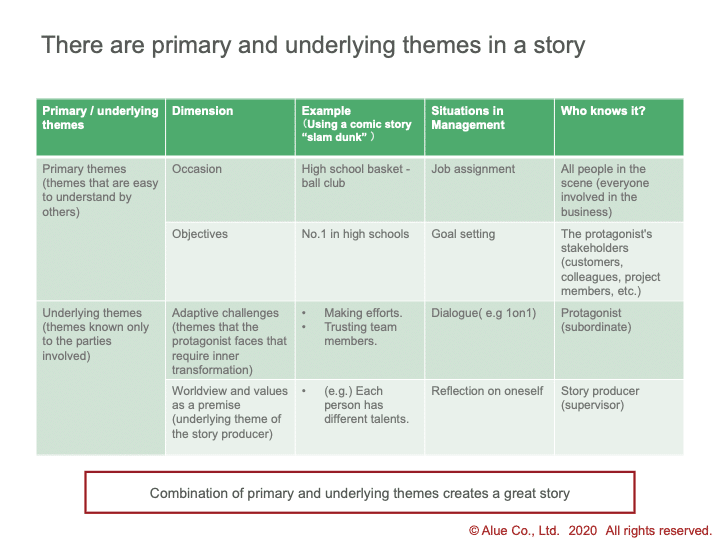
「人を育てるとはどういうことか?」をあらためて考えてみる
前回の記事では、部下の「性格」に合わせた育成についてお話しました。部下の性格は、自分とは異なることを大前提とした上で、部下の性格を理解することから始め、キャラクターとペルソナの望ましいバランスが実現できるように、コミュニケーションの仕方を工夫することの大切さをお伝えしました。
今回の記事は、人材育成に関する最後の記事として、「ひとを育てるとはどういうことか?」についてあらためて考えてみたいと思います。
人を育てると言うことに関する根本的な問いの一つは「育成(成長)の課題は、誰の課題なのか」という問いです。そして、その答えとしては、「その人の課題はその人のもの」であるということをお伝えしました。
つまり、育成する側からすれば「相手の課題は相手のもの」、また育成される側からすれば「自分の課題は自分のもの」という認識が、すべての前提になります。

言葉で表現すると簡単ですが、これを「正しく認識する」のは意外と難しいです。この点は誤解が生じやすいので、少し踏み込んで解説していきたいと思います。
課題は相手のもの。ただし…
まず、育成する側からみて「相手の課題は相手のもの」というのは紛れもない事実です。しかし育成する側がこれを意識しすぎると、突き放すような感覚になってしまう危険があります。
たしかに、課題解決を代わってあげることはできません。でも、本人が課題に向き合えるかどうかは、周囲の働きかけによる面が多分にあります。

「環境次第で誰でも成長する」もまた事実であり、育成する側はこの意識を強く持っておく必要があります。本人が自力で課題を解決するために積極的な支援をすることが、まさに「人材育成」なのです。
一方で、育成される側が「自分の成長は環境次第」と思いすぎると、自分で課題を解決する意識が弱くなります。育成される側は、あくまで「自分の課題は自分のもの」と強く意識しておくほうがよいでしょう。
つまり、人材育成がうまくいくパターンは、育成する側・される側それぞれが次のような認識を持っているときです。
育成する側(上司):相手の課題は相手のものだが、自分の働きかけ次第で解決に向けて力強い支援ができる可能性がある
育成される側(部下):自分の課題は自分のものであり、上司からの支援など周りの環境を最大限活用しながら、自分でオーナーシップをもって取り組む
これが逆になるとダメです。つまり、育成する側が「相手の課題は相手のもの」と突き放し、育成される側が「自分の成長は環境次第」と他力本願になっている状態では、決してうまくいきません。
突き放すことなく「見守りきる」
「馬を水辺に連れて行くことはできても、水を飲ませることはできない」ということわざがあります。

これは人材育成の本質をよく表していると思います。
このことわざに照らし合わせれば、「水辺に連れていく」は環境を整える支援であり、「水を飲むかどうか」は相手の課題です。「水を飲まなければならない」と周囲が強制することはできません。水を飲むかどうかはあくまで本人の意思とタイミング次第です。
一方で、周囲からの支援は水辺に連れて行った時点で終わりなのでしょうか? 水辺に連れて行った時点で「あとは勝手にしてね」と突き放すのは、支援としては不十分です。
突き放さずに支援し続けるイメージとしては、水辺に連れて行ったあとで「どうするかな?」と見守っておく感覚です。場合によっては声を掛けることがあってもいいでしょう。ただし、先ほど述べた通り「水を飲みなさい」と強制することはできません。
見守る中で、本人に迷いやわからないことがあれば手を差し伸べます。そうやって、本人が動くまで「見守りきる」のです。それが「相手の課題は相手のもの」としつつ、突き放しすぎないということの両立ではないかと思います。
何かを決断したり行動に移したりすることは、本人にとって非常に「尊い」ことです。人生において「一番おいしい果実」と言ってもいいかもしれません。その果実を収穫して味わうことは、本人のためにとっておきましょう。
自分で掴んだものが、その人の人生の糧になっていきます。ですから、選択することや決断することは本人にゆだねましょう。
周囲ができることは、あくまで「選択肢の提供」であり、あとは温かく「見守りきる」だけです。これはまさに、どんな種類の教育にも通じる本質だと思います。

上司である自分の世界観が部下に影響を与えることの重大さを受け入れる
育成する側が直接誘導しなくても、「選択肢を与える」「見守る」という行為の中で、育成する側(上司)の世界観は育成される側(部下)の成長に大きな影響を与えます。
相手の人間的な成長にかかわろうとする以上、「その人の人生に大きな影響を及ぼす」ことは避けては通れません。みなさんも社会人になって初めての上司となる方の影響は、大きかったのではないでしょうか。育成する側には、そのように人の人生に大きな影響を与えることに対する覚悟や恐れが必要です。
人材育成において、育成する側(上司)の世界観がどのように部下の成長に影響を与えるかについての私の考えを、漫画のメタファーでお伝えできればと思います。
育成される側は物語に登場する「主人公」であり、育成する側は「作者」です。主人公は物語の中で直面する課題を自分で解決していき、作者が物語に登場することはありません。
しかし、物語全体のテーマには作者の意向が大いにかかわってきます。次の図では、マンガ「スラムダンク」を例に物語の表のテーマと裏のテーマを私なりに整理しています。

ここでの裏テーマの一つが、作者の世界観です。これが物語の土台となって、名ストーリーが紡がれていきます。
人材育成も似ています。物語の主人公は「育成される側」です。そして、物語は主人公を中心に展開していきます。一方で、その人がどんなストーリーで成長していくかは、「育成する側」の世界観が影響せざるをえないのです。
「育成する側」の世界観がより成熟したものであればあるほど、よりよいストーリーを紡ぐことができます。つまり、人材育成の質は「育成する側」がどれだけ成長(≒成熟)できるかにかかっているのです。
まさに「教えることは最大の学び」という言葉の通りです。「人を育てる」とは、自分自分が成熟への道を進んでいこうとすることなのです。

人材育成に真摯に向き合えば、相手の人生をよりよい方向にいくように支援できる可能性があるだけでなく、自分の人生の可能性も拓けます。相手の人生にとって本質的な支援をするほど、自分の人生にも多くのものが返ってくるのです。人材育成は、それだけ私たちの人生に大きな影響を与えるテーマです。
現代のビジネス環境において、人材育成は、目標達成のための手段とみなされることが少なくありません。そのような捉え方が間違っているという話ではありませんが、育成する側・育成される側の双方に大きな影響を与えるものであるということを考えれば、人材育成自体を目的の一つとして捉える考え方もあるのではないかと思います。
本記事で、人材育成に関する章は終了です。最後までお読みいただき、どうもありがとうございました。
本日の問いとなります。(よろしければ、コメントにご意見ください)
・あなたにとって、自分を育ててくれた上司あるいは目上の人を思い浮かべてみてください。その方は、どのような人材育成の哲学をもっていましたか?
・あなたにとって、人材育成とはどのようなものですか?
What does it mean to develop people?
In my last article, I talked about training subordinates according to their "personalities". Based on the basic premise that our subordinates' personalities are different from our own, we started by understanding their personalities, and we conveyed the importance of devising ways to communicate with them so that the desired balance between character and persona can be achieved.
In this final article on people development, I would like to rethink the question, "What does it mean to develop people?"
One of the fundamental questions about nurturing people is "Whose challenge is it to nurture (grow)? And I have told you that the answer to that question is that "the challenges of the person are his/her own."
In other words, all of this is premised on the recognition that "the challenges of subordinates are theirs" from the supervisor's perspective, and " my challenges are my own" from the subordinate's perspective.
It is easy to express in words, but it is surprisingly difficult to "correctly recognize" this. Since this point is easily misunderstood, I would like to go a little further and explain it.
"The challenge belongs to my subordinates. But..."
First of all, it is an undeniable fact that, from the supervisor's point of view, "the challenges of subordinates are theirs. However, if supervisors are too conscious of this, there is a risk that the subordinates will feel as if they are being shunned.
It is true that you cannot take over the task of addressing the challenges. However, whether or not a subordinate is able to face a challenge depends to a large extent on the efforts of those around him or her.
It is also true that "anyone can grow depending on the environment," and those who are in charge of nurturing must be keenly aware of this fact. Providing active support to help individuals address challenges on their own is exactly what "people development" is all about.
On the other hand, if subordinates think too much that their growth depends on their environment, their awareness of solving their own challenges will weaken. It is better for subordinates to be strongly aware that "their challenges are their own."
In other words, the pattern of successful people development is when each of the supervisor and subordinate has the following recognition.
Supervisor: The challenges they face are their own, but depending on my own approach, I may be able to provide strong support to help them address these challenges.
Subordinate: The challenges are my own, and I will take ownership of them while making the best use of the environment around me, including support from my supervisor.
It is no good if this is reversed. Namely, it will never work if the supervisor shuns the subordinate, saying, "The subordinate's challenges are his/her own," and the subordinate is dependent on others for his/her growth, saying, "My growth depends on the environment."
Never push your subordinates away, but keep an eye on them
There is a saying, "You can lead a horse to water, but you can't make it drink."
I believe that this expresses well the essence of people development.
With reference to this proverb, "taking a horse to water" is a supportive environment, while "whether or not it drinks water" is a challenge for subordinates. A person cannot be forced by his/her surroundings to drink water. It is up to the subordinate's will and timing to decide whether or not to drink water.
On the other hand, does the support from the supervisor end when he/she takes them to the waterfront? It is not enough to say, "Do as you want" after taking them to the water's edge.
The image of continuing to support them without pushing them away is the sense of keeping an eye on what that subordinate will do after taking them to the waterfront. In some cases, it is acceptable to talk to them. However, as mentioned earlier, you cannot force him/her to "drink water."
As you watch over the subordinate, if he or she has any hesitation or questions, you reach out to them. In this way, you continue to watch over your subordinates until they make a move. I believe that this is the balance between considering the challenges of your subordinates to be theirs, but not pushing them too far.
Making a decision or taking action on something is a very valuable experience for your subordinates. It may be said that it is the "most delicious fruit" in life. Save the harvesting and tasting of that fruit for your subordinates.
What one grasps for oneself will become the foundation of one's life. Therefore, let him or her make the choice and the decision.
All that those around him/her can do is "provide options," and all that remains is to keep a warm eye on him/her. This is the essence of any kind of education.
Accept the gravity of the impact of your worldview as a supervisor on your subordinates
Even if the supervisor does not directly guide the subordinate, in the act of "giving choices" and "watching over" the subordinate, the supervisor's view of the world has a significant impact on the subordinate's growth.
As long as you are involved in the personal growth of others, it is inevitable that you will have a significant impact on the work life of your subordinates. I am sure that your first supervisor had a great impact on you when you first entered the workforce. Supervisors need to be prepared for and fear having such a large impact on the work lives of their subordinates.
I would like to share my thoughts on how a supervisor's view of the world affects the development of his/her subordinates, using the metaphor of a comic story.
The subordinate is the "protagonist" in the story and the supervisor is the "story producer." The protagonist solves the challenges he faces in the story by himself, and the story producer does not appear in the story.
However, the author's intentions play a large role in the overall theme of the story. In the following diagram, I use the manga "Slam Dunk" as an example to organize the primary and underlying themes of a story.

One of the underlying themes here is the story producer's worldview. This is the foundation on which a great story is woven.
People development is similar. The protagonist of the story is the subordinate. The story then evolves around the protagonist. On the other hand, the " supervisor's" view of the world cannot help but influence what kind of story the subordinate will go through.
The more mature the supervisor's view of the world, the better the story can be woven. In other words, the quality of people development depends on how much the supervisor can grow (≒ mature).
This is exactly what the phrase "teaching is the greatest learning experience. To " develop people" is to try to move yourself on the path to maturity.
If you take people development seriously, you will not only have the possibility of helping others to have a better life, but you will also open up possibilities for your own life. The more essential support you provide to others, the more will come back to you. People development is a topic that has such a profound impact on us.
In today's business environment, people development is often viewed as a means to an end, a way to achieve a goal. This is not to say that such a view is wrong, but considering that it has a significant impact on both subordinates and superiors, there may be a way of thinking of people development itself as one of the purposes.
This article concludes the chapter on people development. Thank you very much for reading to the end.
Here are the quests of the day. (If you'd like, please share your thoughts in the comments.)
・Think of a supervisor who, for you, has nurtured you. What was his/her philosophy on people development?
・What does people development mean to you?
Bunshiro Ochiai
